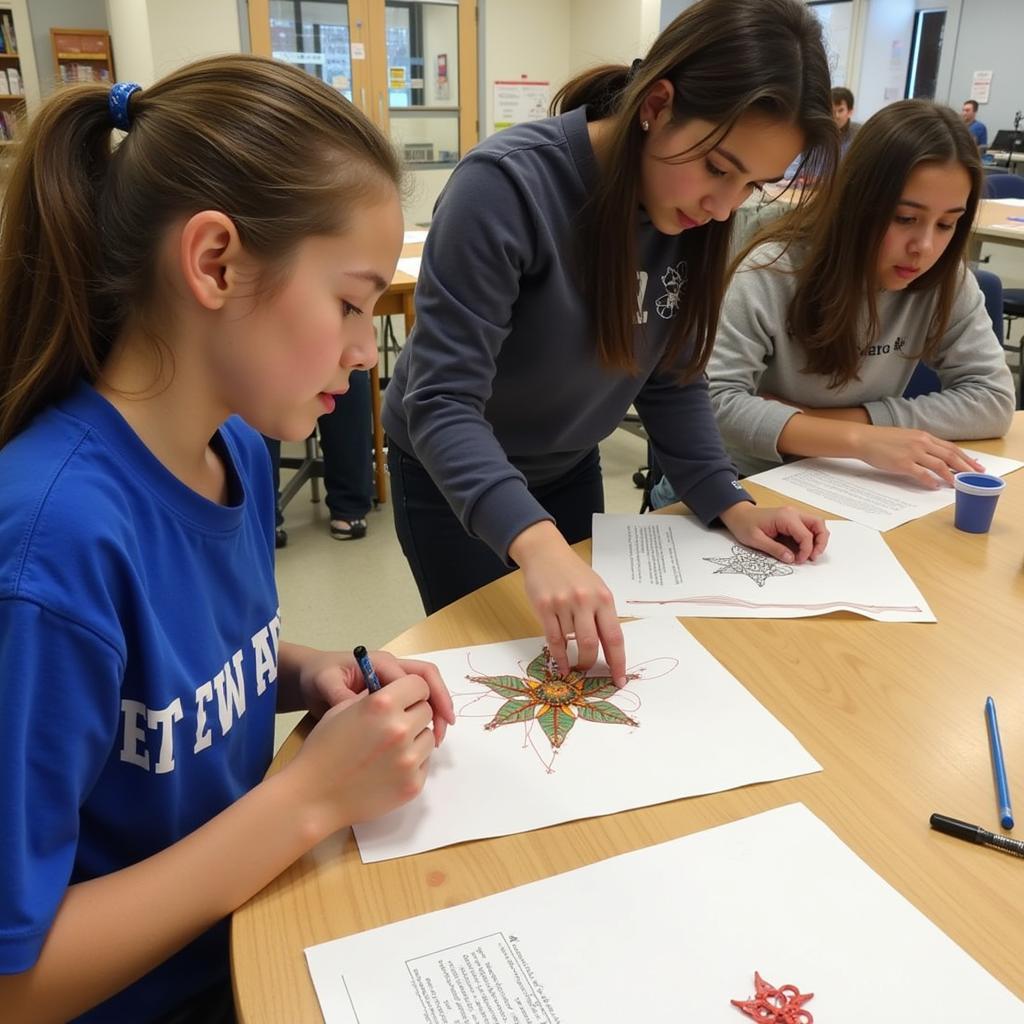Art education and creativity development have become increasingly common themes in IELTS Writing Task 2, appearing in approximately 15% of recent exam questions. This topic is particularly relevant as the importance of arts education in fostering creativity continues to be debated in educational systems worldwide.
Analysis of Common Question Types
Recent IELTS exams have featured several variations on this theme. One frequently appearing question type is:
Some people think that schools should focus on teaching science rather than art subjects to help children’s development. To what extent do you agree or disagree?
Question Analysis
This question requires candidates to:
- Take a clear position on art vs. science education
- Evaluate the impact on children’s development
- Support arguments with relevant examples
- Consider multiple perspectives
Sample Essay 1 (Band 8.0)
In my opinion, while science education is undoubtedly important, the importance of fostering creativity in school children through art subjects is equally crucial for their holistic development. I strongly disagree with prioritizing science at the expense of artistic education.
Firstly, art education develops unique cognitive abilities that complement scientific thinking. When students engage in activities like painting, music, or drama, they learn to think abstractly and develop problem-solving skills from different perspectives. For instance, designing a sculpture requires spatial reasoning, while composing music enhances mathematical thinking through rhythm and patterns.
Furthermore, artistic education nurtures emotional intelligence and self-expression. Unlike scientific subjects that often focus on concrete facts, art allows students to explore and communicate their feelings, leading to better emotional awareness and mental well-being. This emotional development is crucial in today’s high-pressure academic environment.
However, the optimal approach is to maintain a balance between art and science education. While importance of science education in schools cannot be understated, exclusively focusing on it would deprive students of essential creative and emotional development opportunities. Countries like Finland and Singapore have successfully demonstrated how integrating both disciplines leads to better educational outcomes.
In conclusion, schools should maintain a balanced curriculum that values both artistic and scientific subjects, as this approach best serves children’s overall development and future success.

Sample Essay 2 (Band 6.5)
I disagree with the idea that schools should focus mainly on science instead of art subjects. Both subjects are important for children’s development.
Art subjects help students be creative. When students learn art, they can express their ideas in different ways. For example, in my country, students who study art often become more innovative in their thinking. They can also feel more relaxed and happy in school.
Science is also important because it helps students understand the world. Students need to learn about mathematics, physics, and biology. These subjects help them solve problems and understand how things work. In many Asian countries, students study a lot of science and get good jobs.
Should fine arts be prioritized in education? I think both art and science should be taught in schools. Some students are good at art, while others are good at science. Schools should give students chances to learn both subjects.
In conclusion, schools should teach both art and science subjects. This helps students develop different skills and become more successful in the future.
Key Vocabulary
- holistic (adj.) /həʊˈlɪstɪk/ – including all parts of something
- cognitive abilities (n.) /ˈkɒɡnətɪv əˈbɪlətiz/ – mental skills used in learning
- spatial reasoning (n.) /ˈspeɪʃəl ˈriːzənɪŋ/ – ability to understand space and dimension
- nurture (v.) /ˈnɜːtʃə/ – to help develop or grow
- innovative (adj.) /ˈɪnəveɪtɪv/ – introducing new ideas or methods
Writing Practice Suggestion
Try writing your own essay on this related topic:
“Some people believe that creativity cannot be taught in schools. Do you agree or disagree?”
Share your practice essays in the comments section for feedback and discussion with fellow learners.